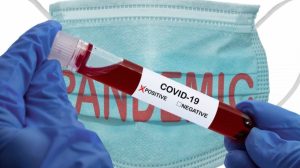Sole Trader Start-up
Many foreign residents plan to open a small business when they move to Portugal. Regardless of your interest or motivation, it is essential to understand the basic requirements in Portugal before launching and conducting your new business activity. The following FAQ’s will help you get off to a good start while better serving your clients throughout the EU and beyond.
What is the difference between Standard Accounting and the Simplified Regime?
“Standard Accounting” refers to the traditional system of accounting that calculates taxable profits from the net difference between income and expenses. This method requires professional accounting services (“TOC”). Under the “Simplified Regime”, taxable income is calculated as a percentage of invoiced income (from the total of “electronic green receipts”) and is usually self-administered.
Do most self-employed go automatically into the Simplified Regime?
Yes, but not all. The Simplified Regime is designed for smaller businesses. To qualify, your gross invoiced income must not exceed €200 000.
What happens if my income exceeds this limit?
On a one-time basis, you may surpass this threshold by 25%. If repeated, the “AT” will switch you automatically to Standard Accounting (“Contabilidade organizada”). Subsequently, a Chartered Accountant must do regular reporting.
Initially, I opted for Standard Accounting but now realise that the Simplified Regime should be more advantageous. Can I switch?
Yes, taxpayers may switch in the following fiscal year if they so wish.
I only had €1,500 of income from a sideline business. How should I report?
When freelance income constitutes less than one half of an individual’s declarable income, it may be treated as an “Isolated Act” and follow standard accounting rules. No “TOC” is required.
How do I calculate my taxable income?
The calculation for determining taxable income is as follows:
Category B Expanded Simplified Regime Base
Sales of goods and services; Activities related to tourism 15%
Liberal Profession business activities (profissões liberais) 75%
Other income from services 35%
Royalties, know-how, other income in connection with
activity; Rental income not declared in Category F 95%
Non-business-related subsidies 30%
Business related subsidies; Other income not listed 10%
This income is added to other sources (aggregation) to determine your final rate of taxation.
Is it true that there is a minimum tax?
No. While one used to exist, the minimum tax was abolished in 2010.
When do I have to charge “IVA” to my clients?
“IVA” (Valued Added Tax) requirements are the same under both methods. Once income exceeds €12,500, regular IVA collection and reporting is mandatory, either on a quarterly or monthly basis, depending on turnover.
Do I have to make contributions to Social Security?
Beginning in the first year of business activity, you are entitled to a 50% discount. In year two, the adjustment reduces to 25% and disappears altogether in the 3rd year and beyond, based on monthly payments to Social Security at the rate of 21% of your taxable income.
If your business activity is Local Lodging (“Alojamento Local”), you are exempt from Social Security contributions on this income.
If you already contribute to Social Security in another country or receive Social Security benefits, you can request exemption from paying again in Portugal. Alternatively, you may be eligible for reduced contributions.
“Início de Actividade” (Business Registration)
Formal registration of your business activity with Finanças is the first step to detail all required information about yourself and your planned endeavour.
“Recibos Verdes Electrónicos” (Electronic Green Receipts)
Freelancers may no longer buy books of Green Receipts and must file invoices electronically via Internet. Be careful to use the correct procedures within the duly designated time periods as there are fines if deadlines are not met.
Social Security
Freelancers must register with Social Security (National Insurance) and make monthly payments in the beginning of the second year of business activity. Services as well as Sales and Production currently contribute 21%. If you receive Social Security benefits or are already contributing to Social Security in another country, you may be eligible for exemption from contributions in Portugal.
National Health Coverage
As a freelancer, you will be eligible to apply for your “Cartão de Utente” (National Health Card). You, your spouse, and dependent children will be covered. With this registration, you will gain access to local Health Centres and Regional Hospitals. The card also entitles you to reductions on medication and prescriptions at local pharmacies.
“IVA” (VAT)
Unless your income or activity exempts you from collecting “IVA” (freelance income under €12,500 pa), quarterly submissions need to be filed. Unfortunately, only Portuguese-language applications are available. If you invoice primarily outside of Portugal to other countries in the EU and beyond, this reporting could entitle you to a refund for “IVA” paid on business expenses Portugal.
Dennis Swing Greene
info at madeira-weekly.com



